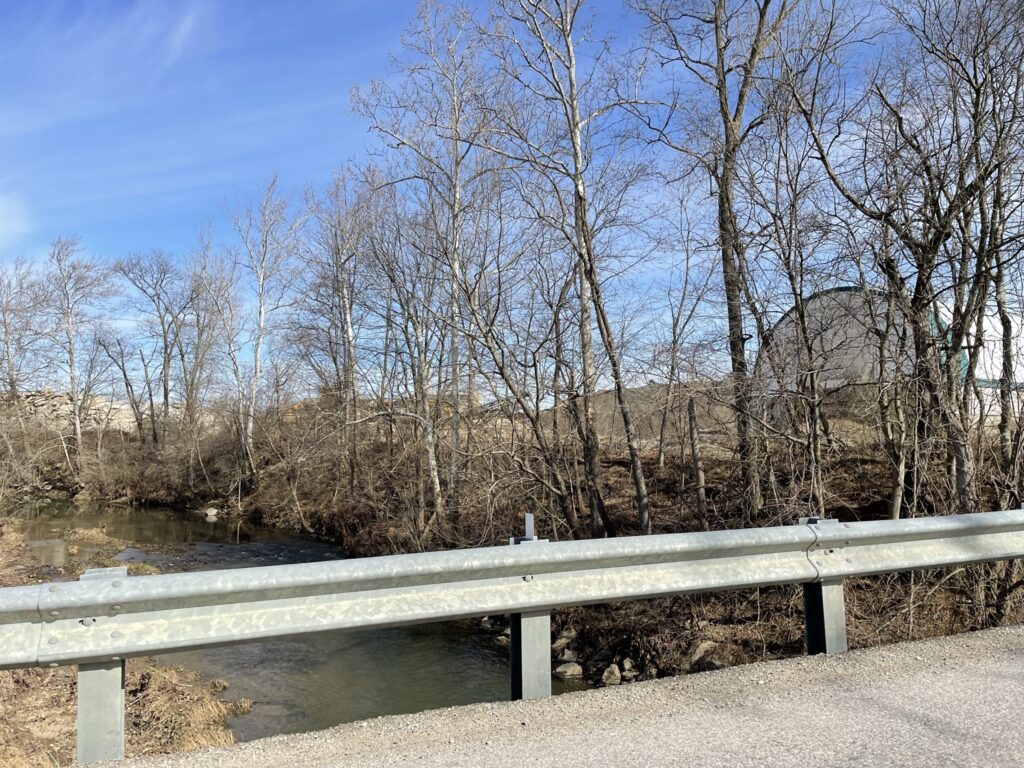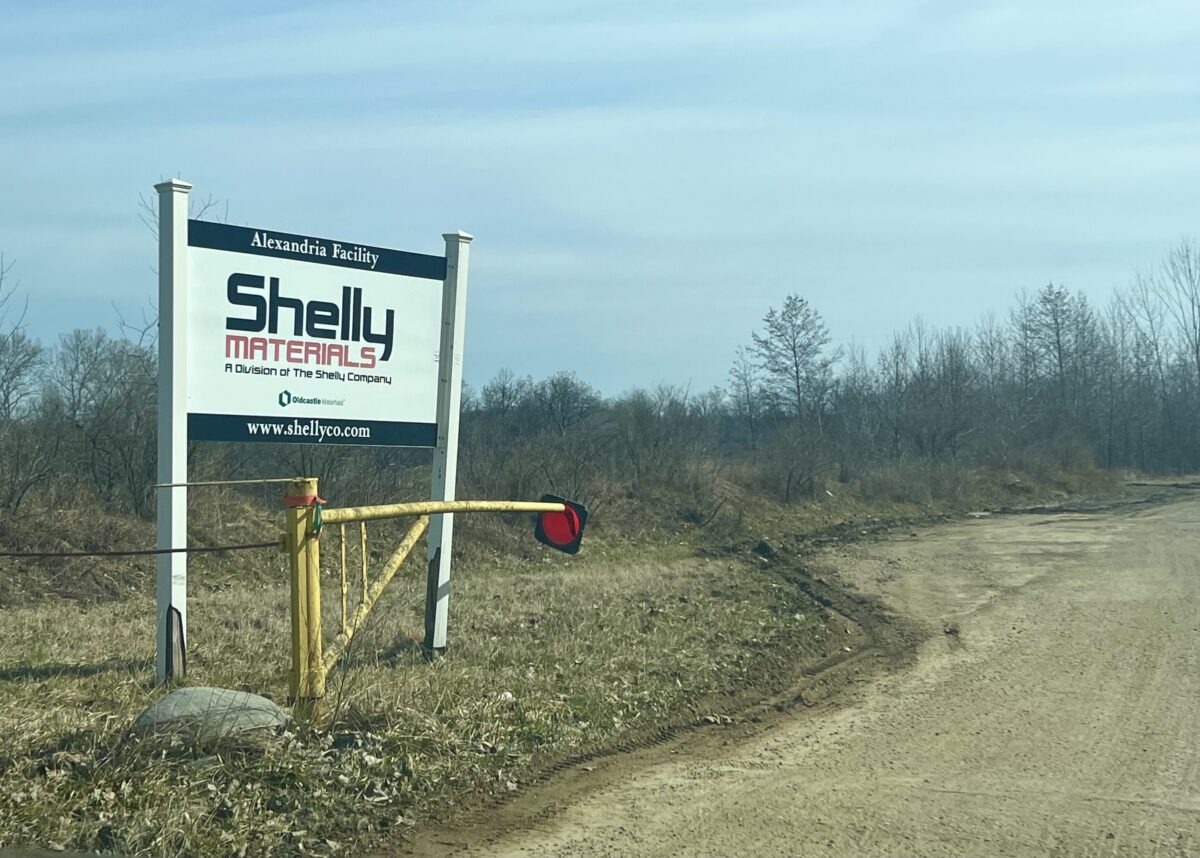A public meeting will be held next month on requests for environmental permits to install and operate asphalt manufacturing plants that would bookend the village of Alexandria.
Scioto Materials, an affiliate of The Shelly Company, proposes a plant at 1400 Tharp Road, near Rt. 37 on the southeast side of the village, and Mar-Zane Materials of Zanesville proposes one for the northwest side at 2699 Johnstown Alexandria Road, which is the Martin Trucking property.
Residents of Alexandria, St. Albans Township, Granville and Granville Township have raised concerns about potential air and water pollution from plants that would mix gravel with petroleum products close to residential areas and Raccoon Creek, which recharges the well field from which Granville draws drinking water for both Granville and Alexandria residents.
The Ohio Environmental Protection Agency said in a notice and Q&A it issued this week that it will hold a meeting to discuss these proposed plants at 6 p.m. on Thursday, June 8, at the Church of Christ in Alexandria, 5380 Moots Run Rd.
“Immediately following this session, the agency will hold a public hearing to gather comments pertaining to a draft air permit issued to Scioto Materials,” said the EPA notice. Comments on that permit can be sent to Benjamin.halton@epa.ohio.gov through June 15, and the EPA director “will consider all comments submitted when deciding whether to issue a final permit.”
The EPA says it issued an air permit on Feb. 17 to Scioto Materials for installation of roads and storage piles. A wastewater discharge permit associated with construction activity was issued on Feb. 24.
Herb Koehler, Granville Village Manager, said Thursday that village officials encourage residents of the area to attend the June 8 meeting to express their concerns about the asphalt plants – and that if they can’t attend that they submit their comments in writing by June 15.
“We are very appreciative of the groundswell of support for rejecting permits for asphalt plants on Raccoon Creek,” he said.
Koehler said he echoes what Granville Mayor Melissa Hartfield said in a March 2 letter to the Ohio EPA saying that the proposed asphalt plants are of “grave concern” to Alexandria and Granville residents, and residents of St. Albans and Granville townships because of expected air pollution and possible effects on the water supply for the two villages.

“Seating such operations so close to the Alexandria residential center, adjacent to Raccoon Creek, within five miles of three other municipalities, poses wide-reaching harm,” Hartfield wrote in a letter to Anne Vogel, director of the Ohio Environmental Protection Agency. “In Granville, we are particularly concerned of the potential for run-off pollution into Raccoon Creek and the downstream impacts to our municipal water well field adjacent to this major tributary. There simply has to be a better location within the county that can safely accommodate such intense industrial operations without harming our environment.”
The EPA has a pending request from Scioto for construction and operation of an asphalt plant, and a pending request from Mar-Zane to move an existing asphalt plant from another location to the Martin Trucking site. “If approved, this plant has an air permit that will transfer to the new location. Two additional applications for portable generators have also been submitted for this location,” the EPA notice says.
The EPA says it is not taking public comment on the Mar-Zane air permit at this time because it was already approved for the site where the plant is currently located, and that the permit will transfer with the plant.
The EPA says it regulates asphalt plants in two ways:
- They must apply for and receive air permits, and “if our review determines the proposed operation will comply with air rules and standards protective of human health, we will issue the requested permit.”
- If the plant will generate stormwater runoff that discharges into surface water – such as Raccoon Creek, which runs next to both sites proposed for asphalt plants – the EPA says that “they must obtain a permit that limits the quantities of pollutants and sets monitoring requirements and other conditions to protect public health and the aquatic environment.”
When answering the question, “Will these plants affect our drinking water?” the EPA says in its notice that “the Village of Granville, which uses groundwater, supplies drinking water to (Granville and) the Village of Alexandria. The plants should not impact this public water system.”
If the plants aren’t operated properly or violate their permits, the EPA says, the agency can “assess and force compliance with state and federal pollution laws.”
Tom Frederick, zoning inspector for St. Albans Township, where the plants are proposed, said that if the EPA and Licking County Planning Commission approve the requests to install the plants, the St. Albans Board of Zoning Appeals would have to approve a conditional use permit to allow the projects to go forward. That process could take months, he said.
Alan Miller writes for TheReportingProject.org, the nonprofit news organization of the Denison University Journalism Program, which is funded in part by the Mellon Foundation.
thereportingproject@denison.edu

